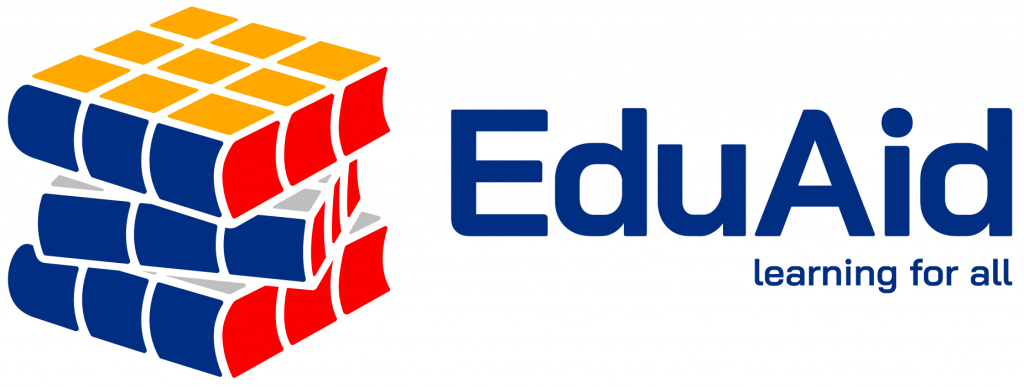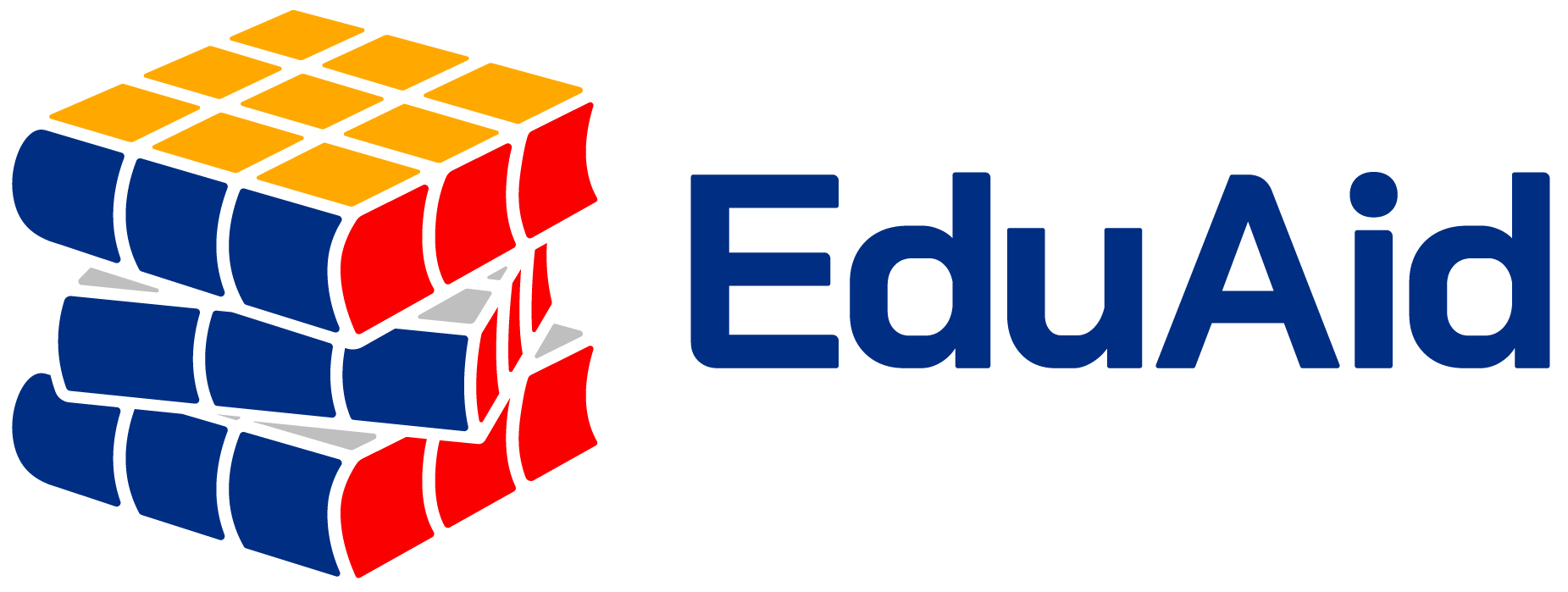NCERT Solutions for Maths Class 9 Chapter 4
Exercise 4.1
Question 1: The cost of a notebook is twise cost of a pen. Write a linear equation in two variable to represent this statement. (Take the cost of a notebook to be Rs. \(x\) and that of a pen to be Rs. \(y\).)
Answer: Let the cost of a notebook be Rs. \(x\) and the cost of a pen be Rs. \(y\).
We know that the cost of a notebook iss twise the cost of a pen.
Therefore, we can write the required linear equationon theform:
Cost of notebook \(=2\times\) cost of a pen
\(x=2y\)
\(x-2y=0\)
Question 2: Express the following linear equations in the form \(ax+by+c=0\) and indicate the valus of \(a, b, c\) in each case.
(i) \(2x+3y=9.\bar{35}\)
Answer: Writing the given equation in standard form \(ax+by+x=0\)
\(2x+3y=9.\bar{35}\)
\(2x+3y-9.\bar{35}=0\)
Comparing this equation with standard form of the linear equation, \(ax+by+c=0\) we have:
\(a=2\)
\(b=3\)
\(c=-9\bar{35}\)
(ii) \(x-\frac{y}{5}-10=0\)
Answer: Writing the given equation in standard form \(ax-by+c=0\)
\(x-\frac{y}{5}-1=0\)
\(5x-y-50=0\)
Comparing this equation with standard form of the equation, \(ax+by+x=0\) we have:
\(a=5\)
\(b=-1\)
\(c=-50\)
(iii) \(-2+3y=6\)
Answer: Writing the givn equation in standard form \(ax+by+x=0\)
\(-2x+3y=6\)
\(-2x+3y-6=0\)
Comparing this equation with standard form of the linear equation, \(ax+by+c=0\) we have
\(a=-2\)
\(b=3\)
\(c=-6\)
(iv) \(x=3y\)
Answer: Writing th given quation in standard form \(ax+by+c=0\):
\(x=3y\)
\(x-3y=0\)
Comparing the equation with standard form of the linear equation, \(ax+by+c=0\) we have
\(a=1\)
\(b=-3\)
\(c=0\)
(v) \(2x=-5y\)
Answer: Writing the given equation in standard form \(ax+by+c=0\)
\(2x=-5y\)
\(2x+5y=0\)
Comparing this equation with standard form of the linear equation, \(ax+by+c=0\) we have:
\(a=2\)
\(b=5\)
\(c=0\)
(vi) \(3x+2=0\)
Answer Writing the given equation in standard form \(ax+by+c=0\)
\(3x+2=0\)
Comparing tis equation with standard form of the linear equation, \(ax+by+c=0\) we have:
\(a=3\)
\(b=0\)
\(c=2\)
(vii) \(y-2=0\)
Answe: Writing the given equation in standard form \(ax+by+c0\):
\(y-2=0\)
Comparing this equation with standard form of the linear equation, \(ax+by+c=0\) we have:
\(a=0\)
\(b=1\)
\9c=-2\)
(viii) \(5=2x\)
Answer: Writing the given equation in standad form \(ax+by+c=0\)
\(5=2x\)
\(2x+5=0\)
Comparing this equaton tith standard form of the linear equation, \(ax+by+c=0\) we have:
\(a=-2\)
\(b=0\)
\(c=5\)
Exercise 4.2
Question 1: Which one of the following options is true, and why? \(y=3x+5\) has
(i) A unique solution,
(ii) only two solutions,
(iii) infinitely many solutions
Answer: We are given that \(y=3x+5\) is a linear equation.
● For \(x=0,\space y=5\). Therefore, (0,5) is a solution of the equation.
● For \(x=1,\space y=8\). Therefore (1,8) is another solution of the equation.
● For \(x=2,\space y=11\) . Therefore (2,11) is another solution of the equation.
Clearly, for different values of \(x\), we get another distinct value of \(y\).
So, there is no end to different solutions of a linear equation in two variables. Therefore, a linear equation in two variables has infinitely many solutions.
Hence (iii) is the correct answer.
Answer: Write four solutions for each of the following equatons
(i) \(2x+y=7\)
Answer: Given equation \(2x+y=7\), can be written as,
\(y=7-2x\)
Let us now take different value of \(x\) and substitute in the above equation-
● For \(x=0\), \(y=7\)
So, \((0,7)\) is a solution.
● For \(x=1\), \(y=5\)
So, \((1,5)\) is a solution.
● For \(x=2\), \(y=3\)
So, \((2,3)\) is a solution.
● For \(x=3\), \(y=1\)
So, \((3,1)\) is a solution.
Therefore, the four solutions of \92x+y=7\) are \((0,7) , (1,5) , (2,3) , (3,1)\)
ii. \(\pi x+y=9\)
Answer: Given equation \(\pi x+y=9\), can written as, \(y=9-\pi x\)
Let us now take different value of \(x\) and substitute in the above equation-
● For \(x=0\), (\y=9\)
So, \((0,9)\) is a solution.
● For \(x=1\), \(y=9-\pi\)
So, \((1,9-π\) is a solution.
● For \(x=2\), \(y=9-2\pi\)
So, \((2,9-2π\) is a solution.
● For \(x=3\), \(y=9-3\pi\)
So, \((3,9-3\pi\) is a solution
Therefore, the four solution of \(\pi x+y=9\) are \((0.9)\), \((1.9-\pi)\), \((2.0-2\pi)\), \(93.9-3\pi)\)
(iii) \(x=4y\)
Answer: Let us now take different values of \(y\) and substitute in the above equation-
For \(y=0\), \9x=0\)
So, \((0,0)\) is a solution.
● For \(y=1\), \9x=4\)
So, \((4,1)\) is a solution.
● For \9y=2\), \(x=8\)
So, \((8,2)\) is a solution.
● For \(y=3\), \9x=1\)
So, \((12,3)\) is a solution.
Therefore, the four solutions of \(x=4y\) are \((0,0)\), \((4,1)\), \((8,2)\), \((12,3)\).
Qustion 3: Check which of the following are solutions of the equation \(x-2y=4\) and which are not:
(i) \((0,2)\)
Answer: Substituting \(x=0\) and \(y=2\) in the L.H.S of the given equation \(x-2\y=4\):
\(⇒0-2(2)\)
\(⇒-4\)
Since L.H.S.R.H.S.≠ , therefore (0,2) is not a solution of the equation.
(iii) \((4,0)\)
Answer: Substituting \(x=4\) and \(y=0\) in th L.H.S of th equation \(x-2y=4\):
\(⇒4-2(0)\)
\(⇒4\)
Since L.H.S=R.H.S, therefore \((4.0)\) is a solution of the equation.
(iv) \((\sqrt2,\space4\sqrt2)\)
Answer: Substituting \(x=\sqrt2\) and \(y=4\sqrt2 \) in the L.H.S of the equation \(x-2y=4\)
\(⇒\sqrt2-2(4\sqrt2)\)
\(⇒-7\sqrt2\)
Since L.H.S.≠R.H.S, therefore \((\sqrt2,\space 4\sqrt2)\) is not a solution of the equation.
(v) \((1,1)\)
Answer: Substituting \(x=1\) and \(y=1\) in the L.H.S of the given equation \(x-2y=4\):
\(⇒1-2(1)\)
\(⇒-1\)
Since L.H.S≠R.H.S, therefore, \((1,1)\) is not a solution of the equation .
Question 4: Find the value of \(K\), if \(x=2,\space y=1\) is a solution of the equation \92x+3y=k\).
Answer: We are given the equation \(2x+3y=k\) along with the value \(x=2\) and \(y=1\) substituting the given values if the L.H.S of the equation:
\(⇒292)+3(1)=k\)
\(⇒4+3=k\)
\(⇒k=7\)
Terefore, we get \(k=7\) on solving equation.
Study materials
- Refernce Books
- NCERT Solutions
- Syllabus









